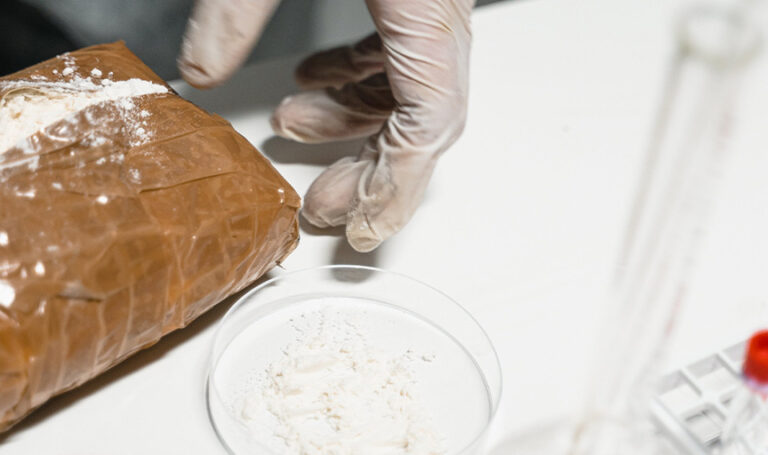What is legal cocaine? And how is it now being incorporated into our food and drinks?
Imagine a future where the caffeine currently present in all your favourite energy drinks and sodas is replaced by cocaine. Now, what if I told you that the future is fast approaching?
Safe Supply Streaming Co. is making substantial investments in companies focusing on the development of food and beverages crafted from coca leaves, known worldwide for its psychoactive alkaloid, cocaine. This initiative has garnered significant attention, with drug policy experts expressing scepticism about its potential impact on addressing the overdose crisis.
The move by Safe Supply Streaming, which was recently listed on the Canadian Securities Exchange, is part of the company’s commitment to invest in businesses contributing to the “safe supply ecosystem.” These businesses include those working on legal cocaine, de-cocainised (meaning non-cocaine-containing) coca leaf wellness products, drug testing strips, and addiction treatment centres.
It’s important to note that the integration of coca leaves into comestible products is not an entirely new concept. Several renowned restaurants have already embraced the use of coca leaves in their kitchens. This innovative approach has not only expanded culinary horizons but also triggered intriguing discussions about the wider implications of such culinary experimentation.
Meanwhile, Safe Supply Streaming is investing in companies like Harbour Solutions, which plans to produce legal cocaine and coca leaf products. These companies are positioning themselves to supply cocaine for projects such as Bern, Switzerland’s capital city, which has made a significant decision to move forward with a scientific pilot trial involving the controlled sale of cocaine. In a parliamentary vote, with 43 votes in favour and 18 against, Bern has approved a proposal by the Alternative Left to expand ongoing cannabis trials to include the potential future legal sale of cocaine.
While acknowledging the harmful nature of cocaine, Bern’s policymakers believe that implementing supervised sales could offer improved control over the substance.
According to Ronan Levy, president of Safe Supply, the company’s role in saving lives is not tied to existing projects. Instead, he believes that changing people’s perceptions about drugs plays a crucial role in influencing policy changes. He cites the example of CBD, a non-psychoactive cannabinoid that gained widespread acceptance in the wellness industry, as an illustration of how societal attitudes can evolve.
How has legal cocaine been criticised?
Despite the ambitious endeavours and innovative thinking, this initiative has not been without its critics. Some drug policy experts have expressed scepticism, arguing that these ventures may be a cynical market ploy that co-opts the language and concepts developed by activists and frontline harm reduction advocates. Their concern lies in the potential for corporate investment to overshadow grassroots efforts to address the drug crisis, particularly in the context of the fentanyl crisis.
Dr. Gillian Kolla, a public health researcher at the University of Victoria’s Canadian Institute for Substance Use Research, expresses unease about commercial enterprises profiting from the drug-related toxicity crisis in Canada without genuine community connections. She highlights the dangers associated with the commercialisation of psychoactive substances, drawing parallels to the tobacco and alcohol industries, where aggressive advertising led to increased usage.
How is the culinary movement destigmatising coca?
Culinary experimentation has taken an intriguing turn as coca leaves, traditionally associated with cultural and medicinal significance in the Andes, find their way onto modern menus. Several renowned restaurants have already embraced the use of coca leaves, expanding culinary horizons and sparking intriguing discussions about the wider implications of this unique ingredient.
The sacred heritage of coca leaves in the indigenous worldview cannot be understated. These leaves are believed to bless the land, provide energy, remedy altitude sickness, and serve as a symbol of gratitude and vitality for hard work. Yet, in contemporary times, most countries have come to view coca leaves solely as the raw material for one of the most problematic export products, cocaine.
Despite being detached from cocaine, coca leaves remain surrounded by taboos and stigmas. However, a culinary movement is bridging this gap by focusing on returning to the roots and recovering the local character of coca leaves, including their ancestral uses.
Restaurants in high-altitude regions like Bogota or Peru are incorporating the use of coca leaves in their offerings. Traditional coca leaf infusions for altitude sickness have become a fixture for customers.
Sommeliers are also exploring coca leaves’ potential. Laura Hernández Espinosa has embarked on a project called Territorio, aiming to synthesise different Colombian regions through distillates and traditional drinks. The goal is to convey the sensations and emotions of each place through innovative drinks, some of which incorporate coca leaves.
To celebrate this culinary revival and promote the historic and cultural importance of coca leaves, the Futuro Coca Festival was born. Held annually on 31 July in Bogotá, this event provides a platform to change the dominant narrative surrounding coca leaves. It reimagines the relationship between people and the plant, offering a world of possibilities for the future.
From haute cuisine to energy drinks, the exploration of coca leaves in various industries promises a journey of culinary rediscovery and cultural celebration. As this trend continues to gain traction, it reflects a dynamic shift in how society views and engages with this sacred plant, offering a glimpse into a vibrant and diverse future for coca leaves across different sectors.






